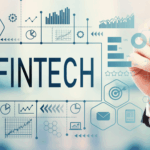The way individuals and businesses allocate time is under significant re-evaluation, as new studies highlight the vast amount of time spent on routine tasks. From app interactions to resolving unexpected life disruptions, inefficiencies in time usage accumulate into hours annually. Concurrently, the emergence of Generative AI (GenAI) technology is offering potential solutions to redirect this time towards more productive and meaningful activities, sparking interest in its applications across sectors, including consumer experiences, healthcare, and corporate innovation.
Earlier reports have extensively discussed the promise of AI-driven technologies in enhancing productivity and automating mundane tasks. However, recent advancements in GenAI focus on personalized, actionable insights, and seamless integration into daily life. This shift marks a departure from prior AI implementations that were primarily limited to specific tools or static applications, underlining a growing emphasis on practical utility over theoretical potential.
How does GenAI impact time management?
GenAI enables users to delegate time-consuming tasks to software assistants, which can execute these processes faster and more accurately. Tasks such as managing schedules, troubleshooting issues, and day-to-day planning are streamlined, thereby reallocating time to activities deemed higher-value by individuals and businesses. Additionally, GenAI accelerates innovation cycles, enabling quicker development of new ideas and solutions, which has implications for industries like healthcare and retail.
Are virtual assistants reshaping consumer habits?
The adoption of virtual assistants powered by GenAI, such as Google (NASDAQ:GOOGL)’s Gemini, illustrates a shift toward voice-enabled, cross-platform solutions. These assistants are increasingly valued for handling practical, time-intensive scenarios, such as resolving disputes or providing tailored recommendations. Recent data reveals an expanding user base for such tools, with Gemini emerging as a notable competitor to Apple (NASDAQ:AAPL)’s Siri, particularly in the U.S. market. This trend signals a shift in consumer reliance on device-centric ecosystems toward app-driven experiences.
Apple’s efforts to incorporate AI under its branded “Apple Intelligence” initiative have yet to deliver significant results, as sluggish iPhone sales indicate limited consumer enthusiasm for hardware-dependent features. In contrast, third-party GenAI applications continue to gain traction, forcing device manufacturers like Apple to reconsider monetization strategies amidst growing competition from cross-platform solutions.
In healthcare, GenAI promises to transition care from reactive treatments to proactive health management. Intelligent health monitoring and personalized diagnostics are anticipated to reduce costs and improve outcomes. Reports suggest that leveraging GenAI for drug development and clinical trials could save substantial time and financial resources while enhancing precision in treatment recommendations. These innovations not only aim to lower costs but also address accessibility concerns in healthcare services.
The integration of GenAI into various sectors raises broader questions about how companies will adapt their business models. While some, like Amazon, can seamlessly integrate GenAI into existing ecosystems, others face challenges balancing innovation with profitability. The potential for GenAI to streamline tasks and introduce efficiencies presents an opportunity for businesses to redefine their value propositions.
Looking forward, the role of GenAI in saving time and improving efficiency depends on its ability to provide tangible benefits across diverse applications. From healthcare cost reductions to workplace productivity enhancements, its adoption will likely hinge on clear, measurable advantages. This evolution not only reflects technological progress but also the changing expectations of consumers and businesses regarding time management and operational efficiency.










